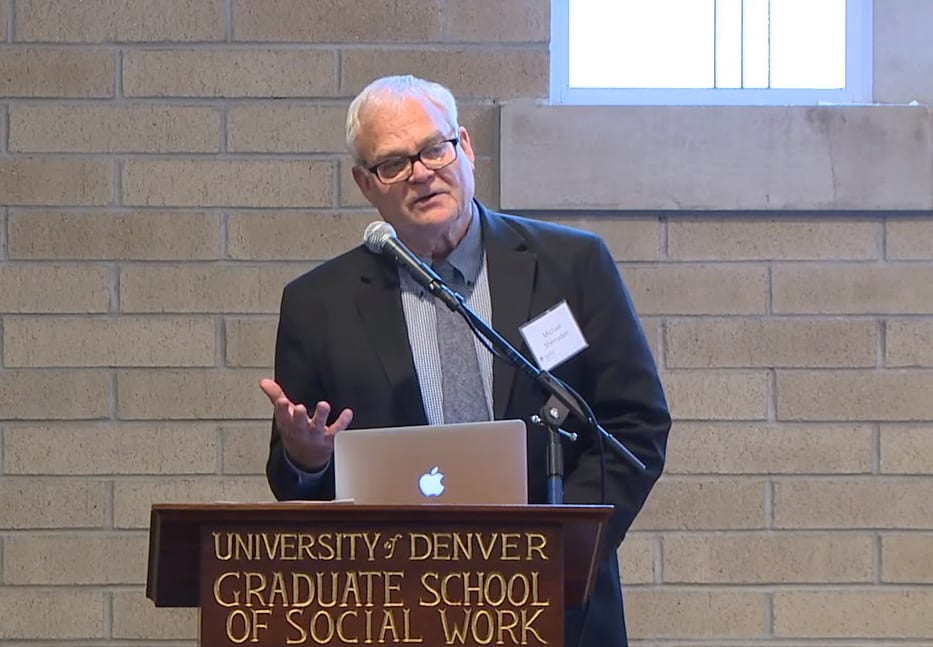Michael Sherraden delivered the keynote address at the Grand Challenges for Social Work event “Economic Equality and Financial Capability” in October at the University of Denver’s Graduate School of Social Work.
“The issues that we face in this world are not all about fixing individuals,” said Sherraden, founding director of the Center for Social Development (CSD).
They are more often about social relationships among people in families, communities and institutions, he said, and that is expertise social workers can claim and be proud of. “Social is fundamental.”
The event was the fourth part of the Social Work for Grand Challenges Science for Action Series, which the graduate school launched to advance progress on the 12 Grand Challenges. Dean Amanda Moore McBride introduced Sherraden, her longtime mentor and longstanding colleague.
“Professor Sherraden was doing social innovation before that became a cool buzz phrase,” McBride said. “He has received widespread recognition for testing social innovations that positively impact people’s lives.”
She noted that he is the only social worker ever listed by TIME magazine as one of the 100 most influential people in the world, and that he is a national co-director of the Grand Challenges for Social Work initiative, put in place under the auspices of the American Academy of Social Work and Social Welfare.
Sherraden provided an overview of the history of social work then spoke specifically about two Grand Challenges: reducing extreme economic inequality, and building financial capability and assets for all. His speech is available on YouTube.
“I want you to understand that social workers before you have created huge and positive changes in our society—from child welfare to labor protections to Social Security in retirement,” he said. “These past accomplishments are important precedents for thinking about Grand Challenges in the future.”
The Grand Challenges “attempt to tackle some of our toughest social problems, and spur social innovations informed by evidence. The initiative is purposefully bold. We should not think small. Social workers have made large contributions to society during the past century, and we can inform and implement important changes in the century ahead,” Sherraden said.
Trina Shanks, associate professor of social work at the University of Michigan, delivered a plenary address on “Reducing Extreme Economic Inequality.” Shanks is a national co-leader of this Grand Challenge, and a CSD faculty director for Inclusion in Asset Building. Among other initiatives, she undertakes research on youth employment and Child Development Accounts in Michigan.
Margaret Sherraden, research professor at the Brown School, gave the plenary address on “Financial Capability and Asset Building for All.” She is a national co-leader of this Grand Challenge and a CSD faculty director for Financial Capability. Her work on Finanical Capability and Asset Building is also being adopted social work training in Singapore, Taiwan and mainland China.
